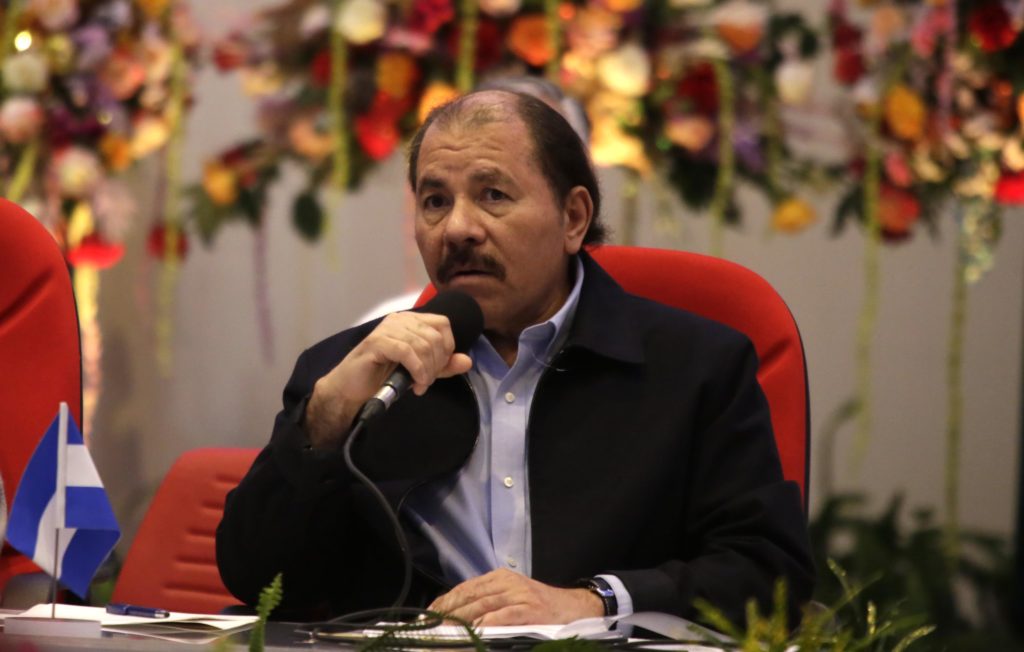
Spanish – One year after the general elections in Nicaragua, the doubts and pressures are mounting to prevent the country presided over by the dictator Daniel Ortega from following Venezuela’s example.
The United States, as well as representatives of the Catholic Church, have demanded democratic guarantees for the elections to take place. “As we approach an electoral year, we share the concern of the people that if elections are held, they must first have the necessary and adequate conditions,” said the Archdiocese in a message issued through the Justice and Peace Commission.
The U.S. government also issued a statement on the subject and threatened “massive pressure” if the Nicaraguan regime did not guarantee free suffrage. “Ortega and Rosario Murillo must choose between establishing the conditions for free and fair elections, or face a massive increase in pressure from the international community,” said the head of U.S. diplomacy for Latin America, Michael Kozak.
A couple of years ago, massive protests erupted in Nicaragua over allegations of electoral fraud that led to calls for early elections. At the same time, given the constant violations of human rights, the United States, European Union, Canada, and the United Kingdom imposed sanctions as a means of pressure.
Ultimately, Nicaragua’s general elections are scheduled for November 7, 2021. However, various sectors are doubtful about its implementation. Ortega does not show signs of fulfilling the commitments made in 2018 and 2019 regarding the liberation of “political prisoners,” the disarmament of paramilitaries, the safe return of exiles, “profound” electoral reforms, and respect for human rights and the constitution.
Punitive laws
Although the elections are still a year away, Daniel Ortega’s regime is preparing two bills and a reform, constituting a threat to Nicaraguans: the law for the regulation of foreign agents and the law on cyber-crimes and life imprisonment. The parliament, which is dominated by the government, could approve these regulations in the next few days.
As for the first one, human rights and governmental organizations are already calling for the National Assembly of Nicaragua not to approve it. The initiative would force anyone receiving funds from abroad not only to register with the Ministry of Interior but also to submit to financial control and even to abstain from participating in politics.
“The concern is paramount because even independent media and human rights organizations are also dependent on foreign financial support. Such a law would be depriving many people who receive foreign aid of the opportunity to stand for election democratically,” members of the European Parliament have denounced.
The second bill, the cyber-crime law, would also attack freedom of expression on the eve of the elections. The regulations propose two to four years in prison for publishing false news. The regime could use this to imprison opponents.
Martha Molina, a lawyer who is a member of the Pro Transparency and Anti-Corruption Observatory, believes that the initiative seeks to control social media. She maintains that the law will sanction actions such as the leaking of official information about the regime.
Electoral fraud “the Venezuelan way”
Just as the Ortega regime prepares itself with punitive laws during an electoral panorama, it has also decided for years to follow the path of Nicolás Maduro in matters of fraud. Sandinismo’s intentions of perpetually holding power are evident. In fact, authoritarian governments such as those of Cuba, Nicaragua, and Venezuela have implemented the same modus operandi of Putin, who, in turn, has been in power for more than two decades.
In a dialogue with the Panam Post, José Pallais, a member of the coordination team of the opposition coalition Frente Amplio Democrático (FAD) of Nicaragua, explained how electoral fraud works in the country. He pointed out that Ortega has become an advisor to the Maduro regime when it comes to implementing electoral fraud. One of them, the “Crazy Mouse” method, consists of changing the location of the voting centers at the last minute so that people do not know where to vote and “walk from one place to another.”
Other fraudulent measures include the removal, without explanation, of thousands of voters from the electoral register by official bodies, the relocation of the voting centers at the last minute, elimination of the use of indelible ink and fingerprints, in addition to the constant and shameless advantage of the ruling party. Moreover, double identification illegally allows some people to vote twice. And most intimidating of all: intimidation by armed groups at the time of the elections.
 Versión Español
Versión Español













